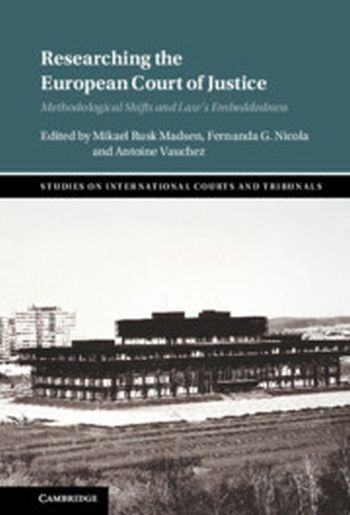
The book takes stock of the on-going 'methodological turn' in the field of EU law scholarship. Introducing a new generation of scholars of the European Court of Justice from law, history, sociology, political science and linguistics, it provides a set of novel interdisciplinary research strategies and empirical materials for the study of the Court of Justice of the European Union. The twelve case studies included challenge the usual top-down approach to EU law and the CJEU and instead suggest a more localized and fine-grained observation of the socio-legal actors and practices involved in the making of CJEU case-law. Moving beyond mainstream legal scholarship and the established 'grand narratives' of legal integration, the volume provides a more historically-informed and sociologically-grounded account of the EU law's uneven embeddedness in Europe's economies and societies.